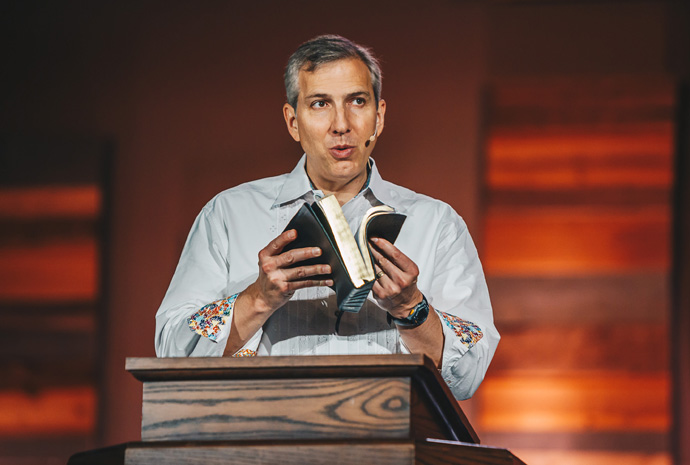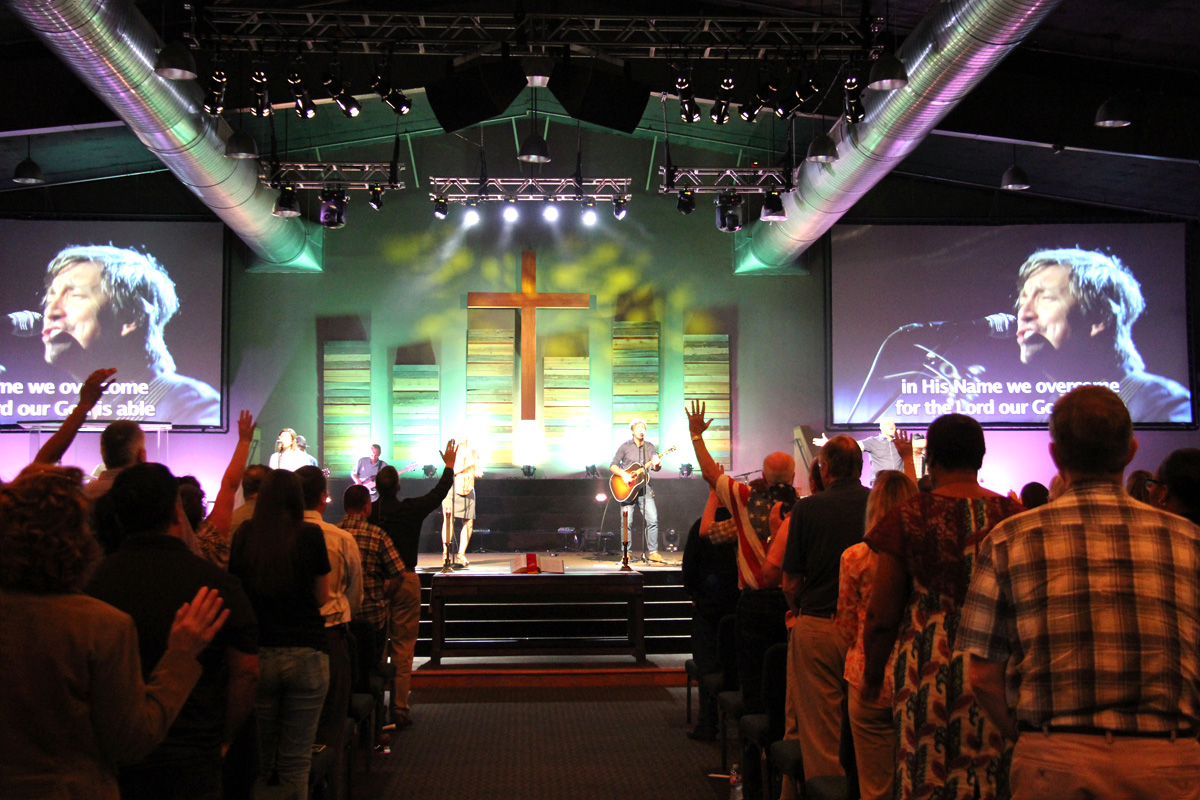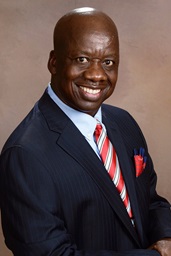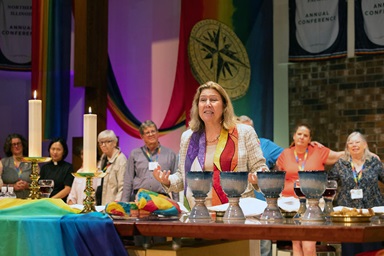One of the Texas Conference’s largest churches has decided to leave The United Methodist Church.
By a 96% margin, the congregation of Grace Fellowship United Methodist Church, in the Houston suburb of Katy, voted Dec. 15 to depart. The church plans to join the Indianapolis-based Free Methodist Church denomination.
The change requires other actions and will likely take months to complete.
The Rev. Jim Leggett, Grace Fellowship’s pastor, and Texas Conference Bishop Scott Jones said in separate interviews that they expect the conference to vote Aug. 15, 2020, on allowing the church to leave.
“I am sorry that they are taking this step, and I have made my case why they should remain United Methodist,” Jones said. “They believe this really is the best way they can be faithful to Christ. So we have a disagreement in discernment, and yet I am providing a graceful exit for them, given the disagreement.”
Leggett said Grace Fellowship had a 40-day period of prayer and fasting before taking its vote at a special called church conference.
“The reason for Grace Fellowship’s vote to leave the UMC is our conviction that the Free Methodist Church better aligns with our beliefs, especially around the authority and truthfulness of Scripture,” Leggett said.
He added that church members wanted to remove themselves “from the dysfunctional fighting going on in The United Methodist Church so that we can fully devote our energies to fulfilling the mission and vision that God has given to us.”
Grace Fellowship started in 1996 as a church plant of Houston’s Chapelwood United Methodist Church.
Since then, Grace Fellowship has grown to about 2,800 members, with an average of 3,000 people in worship.
Jones called it a “vibrant, healthy, growing church.”
The denomination Grace Fellowship seeks to join was formed in 1860 by B.T. Roberts and others who felt the Methodist Episcopal Church should more strongly oppose slavery and not allow pew rentals.
These days, the Free Methodist Church emphasizes its commitment to following Scripture. While welcoming all to its churches, the Free Methodist Church holds that the Bible defines marriage as between a man and a woman.
“The Free Methodist Church’s beliefs on many issues was a factor in our decision, including their view that God deeply loves all LGBTQ persons and including (the Free Methodist Church’s) definition of marriage,” Leggett said.

The Rev. Jim Leggett is pastor of Grace Fellowship United Methodist Church in Katy, Texas. The church’s congregation recently voted, by a 96% margin, in favor of leaving The United Methodist Church. Photo courtesy Grace Fellowship United Methodist Church.
Resistance to that vote has been strong among United Methodists in the U.S. and western Europe, and some legislation introduced for the 2020 General Conference calls for a breakup or major restructuring of the denomination.
For a congregation to leave the United Methodist fold with property, it takes more than a simple vote. The United Methodist Church has a trust clause in its Book of Discipline, the church policy book. The clause, which dates to 1797, states that local church properties are held “in trust” for the denomination.
The 2019 General Conference approved adding to the Discipline a new paragraph, 2553, titled “Disaffiliation of Local Churches Over Issues Related to Human Sexuality.” It sets forth conditions under which congregations can leave the denomination while keeping their property.
Subscribe to our
e-newsletter
Like what you're reading and want to see more? Sign up for our free daily and weekly digests of important news and events in the life of The United Methodist Church.
That paragraph, Jones said, “has been in the Discipline a long time and it applies to churches that want to join another evangelical denomination. The Free Methodist Church surely meets that qualification.”
Under 2548.2, an annual conference can, if certain conditions are met, instruct a local church’s trustees to deed church property to a denomination in the Pan-Methodist Commission or to “another evangelical denomination.”
Jones said the Texas Conference will, at its annual meeting in May, consider policies and procedures for any church wanting to leave the denomination. He said he expects payment of pension liabilities and apportionments to be “part of the (departure) process.”
Grace Fellowship anticipates paying exit costs, Leggett said.
Jones said he has sent a “save the date” notice for a special called meeting of the conference on Aug. 15, 2020. That meeting’s agenda would likely include the vote on Grace Fellowship.
“If Grace still persists in their desire to leave, we will give final approval at that time,” the bishop said.
Hodges is a Dallas-based writer for United Methodist News. Heather Hahn contributed. Contact them at 615-742-5470 or newsdesk@umcom.org. To read more United Methodist news, subscribe to the free Daily or Weekly Digests.
Like what you're reading? Support the ministry of UM News! Your support ensures the latest denominational news, dynamic stories and informative articles will continue to connect our global community. Make a tax-deductible donation at ResourceUMC.org/GiveUMCom.




